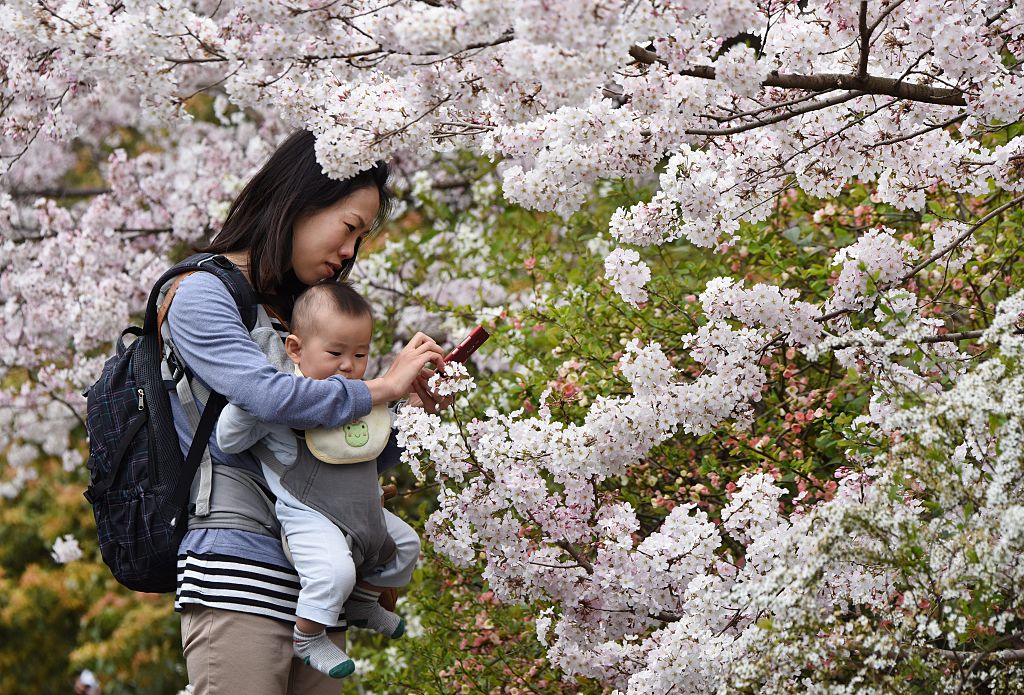Even with incentives, countries are finding it hard to reverse falling birth rates


A free daily email with the biggest news stories of the day – and the best features from TheWeek.com
You are now subscribed
Your newsletter sign-up was successful
China isn't the only country trying to come up with ways to boost its population.
On Tuesday, China's National Bureau of Statistics released data showing that for the first time in six decades, the country's population dropped, with deaths outnumbering births.
To increase birth rates, China has promised to improve maternal health care and introduced subsidies and tax breaks for families, and some cities have said they will give families with multiple children money to help pay for food and housing. However, South Korea shows the limits of such policies. The country has one of the lowest fertility rates in the world, and even after offering free child care and housing benefits, many South Koreans who do end up having a baby say they are stopping at just one.
The Week
Escape your echo chamber. Get the facts behind the news, plus analysis from multiple perspectives.

Sign up for The Week's Free Newsletters
From our morning news briefing to a weekly Good News Newsletter, get the best of The Week delivered directly to your inbox.
From our morning news briefing to a weekly Good News Newsletter, get the best of The Week delivered directly to your inbox.
"I never want to have another child," Kim Ji-ye, a resident of Seoul, told BBC News. Even with "infant support care," it's "just too hard to raise even one, so I just want to focus on him."
Japan's plummeting population is being described by government officials as a "critical situation" that could hurt the country's national strength. The population has been on the decline for more than a decade, and 2022 broke the record low for births set in 2021, when just 811,622 babies were born. Japan's cost of living is high and wages are not increasing, and the government is offering subsidies for pregnancy, childbirth, and child care, hoping that this sustained support is enough to change things. For Katahira Kazumi, a mother to a 4-year-old who had considered a second child, it's not.
"We're surviving by cutting into our savings now," she told NHK. "A second child is just unthinkable for us."
In 2021, 5,800 Japanese married couples participated in a survey where more than half said they weren't having more children because of financial reasons. Matsuda Shigeki, a sociology professor at Chukyo University, told NHK the Japanese government's financial support "is only about half or even one-third of what major Western countries provide."
A free daily email with the biggest news stories of the day – and the best features from TheWeek.com
Nagi, a town of 5,700 in western Japan, is an outlier in the country. The fertility rate in 2019 was 2.95, well above the national average of 1.36. Parents in Nagi receive 100,000 yen ($720) for each baby born, assistance for fertility treatments, and free medical expenses for minors and lunches at elementary and middle schools. "The plans to support new parents hinge on the town's survival," Nagi official Moriyasu Eiji told NHK.
Catherine Garcia has worked as a senior writer at The Week since 2014. Her writing and reporting have appeared in Entertainment Weekly, The New York Times, Wirecutter, NBC News and "The Book of Jezebel," among others. She's a graduate of the University of Redlands and the Columbia University Graduate School of Journalism.
-
 Local elections 2026: where are they and who is expected to win?
Local elections 2026: where are they and who is expected to win?The Explainer Labour is braced for heavy losses and U-turn on postponing some council elections hasn’t helped the party’s prospects
-
 6 of the world’s most accessible destinations
6 of the world’s most accessible destinationsThe Week Recommends Experience all of Berlin, Singapore and Sydney
-
 How the FCC’s ‘equal time’ rule works
How the FCC’s ‘equal time’ rule worksIn the Spotlight The law is at the heart of the Colbert-CBS conflict
-
 Despairing husband creates 'Taylor Swift jar'
Despairing husband creates 'Taylor Swift jar'Tall Tales And other stories from the stranger side of life
-
 Urine video dents Chinese beer brand
Urine video dents Chinese beer brandTall Tales And other stories from the stranger side of life
-
 Nobody seems surprised Wagner's Prigozhin died under suspicious circumstances
Nobody seems surprised Wagner's Prigozhin died under suspicious circumstancesSpeed Read
-
 Western mountain climbers allegedly left Pakistani porter to die on K2
Western mountain climbers allegedly left Pakistani porter to die on K2Speed Read
-
 'Circular saw blades' divide controversial Rio Grande buoys installed by Texas governor
'Circular saw blades' divide controversial Rio Grande buoys installed by Texas governorSpeed Read
-
 Los Angeles city workers stage 1-day walkout over labor conditions
Los Angeles city workers stage 1-day walkout over labor conditionsSpeed Read
-
 Mega Millions jackpot climbs to an estimated $1.55 billion
Mega Millions jackpot climbs to an estimated $1.55 billionSpeed Read
-
 Bangladesh dealing with worst dengue fever outbreak on record
Bangladesh dealing with worst dengue fever outbreak on recordSpeed Read
